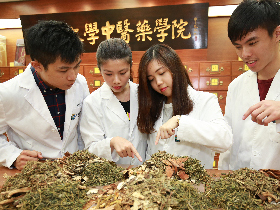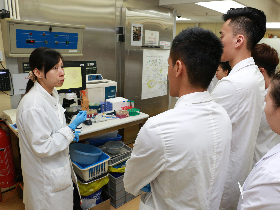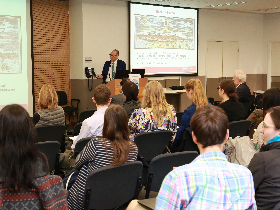Seminar “Non-redox Control Functions of Redox Proteins in Metabolism”
You are welcome to attend the seminar, please find the details below:
Date: Aug 7, 2025 (Thu)
Time: 3:00-5:00pm
Venue: Seminar Room 3, G/F, The HKJC Building for Interdisciplinary Research, 5 Sassoon Road, Pokfulam, Hong Kong
Mode: In-person
Enquires:Tel: 81000538;Email: scmevent@hku.hk
Registration: Please click here
Speaker:
Professor Xingen Lei
Professor of Molecular Nutrition, Animal Science, Nutritional Sciences
Associate Dean, Office of Research and Innovation, Cornell University
Editor-in-Chief, The Journal of Nutrition
Moderator:
Professor Yibin Feng
Director, School of Chinese Medicine, HKU
Abstract:
Selenium is an essential trace element to humans, and 25 selenium-dependent proteins are identified. Although they are considered to function mainly as free radical scavenger, our research on 4 of these proteins including glutathione peroxidase-1 (GPX1), glutathione peroxidase-4 (GPX4), selenoprotein V (SELENOV), and selenoprotein I (SELENOI) has revealed non-canonical roles for these proteins. We found that overexpression of Gpx1 in mice led to type 2 diabetes-like phenotypes, and a novel cascade of GPX1, regenerating islet-derived protein-2, and L-voltage-dependent Ca2+ channel CaV1.2 in islets was attributed to the dysregulation. In nutritional pancreatic atrophy of selenium deficient chicks, GPX4 and prothymosin α exhibited a protein-protein interaction that affected cytochrome c-caspase 9-caspase 3 pathway to induce apoptosis. A global loss of Selenov predisposed mice to extra fat accumulation and attenuated energy expenditure via a protein protein interaction between SELENOV and O-GlcNAc transferase. A liver specific knockout of Selenoi attenuated hepatic injury and fibrosis induced by CCl4. The protection was associated with a decline of redox status and activations of PPAR signaling, fatty acid desaturase 2 glutathione S-transferase, and lipid peroxide hydrolysis through modulating biosynthesis and(or) constituents of phospholipids. In conclusion, metabolic roles of selenoproteins are beyond redox control. We need to expand our view and approach to reveal their full functions and health implications.
About the Speaker:
Professor Xingen Lei is a Professor of Molecular Nutrition at Cornell University. He has developed a new generation of bacterial phytases that are used by the feed industry in 50 countries. Professor Lei pioneered nutritional genomics of selenium and revealed dual roles of selenium in oxidative stress and diabetes. He is an international leader in applying agriculture to prevent “hidden hunger”. He currently serves as the Editor-in-Chief of The Journal of Nutrition, President of Trace Elements and Minerals Association, and Associate Dean of Research and Innovation in College of Agricultural and Life Sciences at Cornell University. He was elected as a Fellow of the National Academy of Inventors in 2021.









